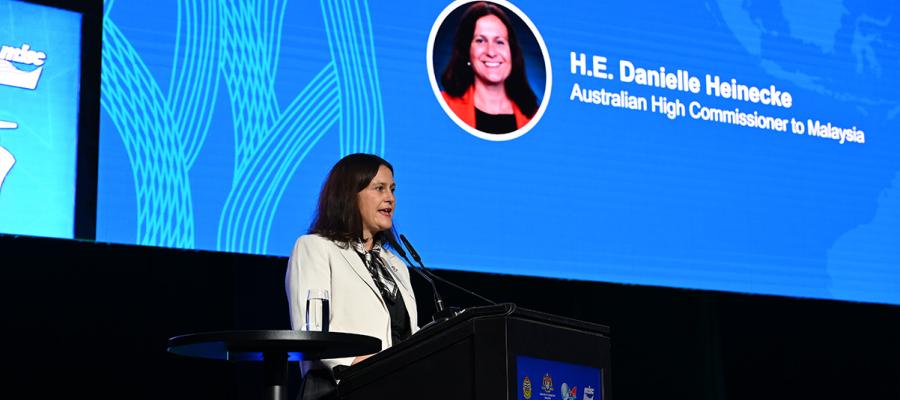If you are interested in partnering with us, please get in touch. Using P4I's flexible, innovative tools and diverse global expertise, we are confident we can design a response that is tailored to your needs.


Opening Remarks by H.E. Danielle Heinecke at ASEAN Future of Maritime Conference 2025
on 17 July 2025 at Sunway Resort Hotel
Excellencies, distinguished guests, colleagues, and partners, Salam Sejahtera and a very good morning to all.
I would like to welcome our Australian government partners from the:
who will share some of the Australian experience on challenges and opportunities for maritime decarbonisation, accessing green financing and safe handling for green fuels.
Ladies and gentleman, a year ago, I had the privilege to deliver the keynote for the Green Shipping Conference for the 2024 installment of Maritime Week.
Since then, the state of play for green fuels in the region and the world has evolved.
Which means thankfully I am not recycling last year’s remarks.
There have been substantial progress, driven by the private sector, the government and the International Maritime Organization (IMO).
Malaysia was also successfully elected to the Council of the International Organisation for Marine Aids to Navigation (IALA) for a two-year term, together with Australia, so for that I offer my congratulations and reiterate Australia’s commitment to working together.
Credit should be given where it’s due.
I also understand that the Secretary General of the IMO Mr. Arsenio Dominguez is in town to attend Malaysia Maritime Week.
This is a testament to Malaysia's clear commitment to maritime decarbonisation and the importance of Malaysia Maritime Week as a regional forum.
The Need to Decarbonise
In April this year, the IMO announced its Net Zero Framework.
These draft regulations are the first in the world to set a legally binding carbon price across an entire global industry.
They will also set mandatory marine fuel standards and greenhouse gas emissions limits in order to decarbonize the shipping sector by 2050. This is a major step.
The international maritime industry is undergoing a transformative and essential shift towards sustainability.
The maritime sector is the backbone of ASEAN’s economy.
Our region’s ports and shipping lanes are vital arteries for trade and prosperity.
However, this economic engine also accounts for a significant share of greenhouse gas emissions, primarily due to the sector’s reliance on fossil fuels.
Three per cent of global greenhouse gas emissions are attributable to international shipping.
If we don’t start now, we will miss a great opportunity.
Reinforcing the PTP Link
Australia continues to work together with Malaysia on maritime decarbonization, through Partnerships for Infrastructure. These efforts have been ongoing since 2022.
We started first with a study to determine the economic and technical feasibility of establishing bunkering facilities for green and transition fuels at the Port of Tanjung Pelepas (PTP).
I understand there are some representatives from PTP who are here in the audience today. That study found that there is no clear silver bullet and no perfect fuel.
The ideal fuel will balance factors including affordability, transferability and the security of supply.
Ports and policymakers must act now to invest in flexible, future-ready fuel infrastructure.
Which is why we have been working with the Ministry of Transport to develop a national low-carbon fuels roadmap to provide a suite of options for policy settings to enable the green fuels ecosystem to thrive.
Policy is important, because it is communicative. Policy sends signals to investors, the business community and the public writ large.
This is a leading example of how inclusive policy development and inter-agency collaboration can catalyse green growth.
In last year’s speech, I alluded to Jules Vernes’ vision that water might one day be a future fuel, through its derivative hydrogen.
But as reality sets in, the greener fuels of today are looking more likely to be LNG and green methanol.
Early movers in our region, such as Malaysia and Singapore, are already demonstrating how targeted investments in alternative fuel bunkering and renewable energy production can drive both sustainability and competitiveness.
I was pleased to learn that PTP had successfully conducted simultaneous operations (or SIMOPS) or cargo and refueling for both LNG and methanol in recent months.
This is a huge undertaking because these operations are not only risky and complex but generate enormous cost and time savings for the liners and the ports.
Thus, I would like to commend PTP and Malaysia on this successful endeavor, which is the first of its kind in the region.
Their experiences show that with the right policy settings, direction and collaboration, Malaysia can become a regional leader in sustainable shipping.
Conclusion
Australia, through the Partnerships for Infrastructure (P4I) initiative, is proud to support Southeast Asian countries — including Malaysia, Thailand, and Vietnam — in preparing their ports and maritime sectors for an inclusive, low-emission future.
Through technical studies, regulatory assessments, and green corridor planning, P4I is helping to unlock new economic opportunities while advancing global decarbonisation goals.
This complements the broader suite of initiatives and programs that we deliver under the Australia-Malaysia Maritime Cooperation Package, announced by Dato Seri PM Anwar and Prime Minister Albanese during their meeting in March last year.
Under that package, Australian agencies and experts have been working closely with Malaysian counterparts to deliver programs that help strengthen Malaysia’s maritime security, ocean policy, law of the sea and maritime domain awareness capabilities.
Last year we celebrated 50 years of partnership with ASEAN.This year we celebrate 70 years of diplomatic relations with Malaysia.
I would like to commend Malaysia, as ASEAN Chair this year, for placing “Inclusivity and Sustainability” at the heart of its regional agenda.
Thank you again to our partners: the Ministry of Transport, the Malaysia Shipowners Association and the ASEAN Secretariat for your collaboration on delivering today’s event.
I wish you a successful forum.
If you are interested in partnering with us, please get in touch. Using P4I's flexible, innovative tools and diverse global expertise, we are confident we can design a response that is tailored to your needs.
